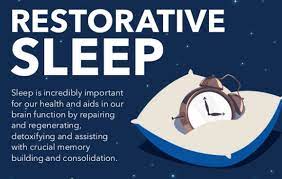Sleep disorders are a common problem that affects millions of people worldwide. The inability to get a good night’s sleep can lead to a range of health problems, including fatigue, irritability, and decreased productivity. Fortunately, there are several solutions available to help those who suffer from sleep disorders.
One of the most effective ways to combat sleep disorders is through lifestyle changes. This can include establishing a regular sleep schedule, avoiding caffeine and alcohol before bedtime, and creating a relaxing bedtime routine. Additionally, regular exercise and maintaining a healthy diet can improve overall sleep quality.
For those who struggle with falling asleep or staying asleep, medication may be an option. There are several over-the-counter and prescription medications available that can help regulate sleep patterns. However, it’s important to speak with a healthcare professional before starting any medication regimen.
Another solution for sleep disorders is cognitive-behavioral therapy (CBT). This type of therapy focuses on identifying negative thought patterns and behaviors that may be contributing to poor sleep quality. CBT can also teach relaxation techniques such as deep breathing exercises and meditation.
In some cases, alternative therapies such as acupuncture or hypnotherapy may be helpful in treating sleep disorders. These therapies work by stimulating specific pressure points or accessing the subconscious mind to promote relaxation and better sleep.
Finally, for those with more severe cases of sleep disorders such as insomnia or sleep apnea, medical intervention may be necessary. A healthcare professional may recommend treatments such as continuous positive airway pressure (CPAP) machines or surgery to address underlying medical conditions.
In conclusion, there are many solutions available for those who suffer from sleep disorders. By making lifestyle changes, seeking therapy or medication options, exploring alternative therapies or undergoing medical intervention when necessary, individuals can improve their overall health and well-being by getting the restful and restorative sleep they need.
7 Effective Solutions for Sleep Disorders: Tips to Improve Your Sleep Quality
- Establish a consistent sleep schedule
- Create a relaxing sleep environment
- Exercise regularly
- Avoid caffeine late in the day
- Limit alcohol consumption
- Avoid nicotine
- Practice relaxation techniques before bedtime
Establish a consistent sleep schedule
Establishing a consistent sleep schedule is one of the most effective solutions for those who suffer from sleep disorders. Our bodies thrive on routine, and going to bed and waking up at the same time each day can help regulate our internal clock and promote better sleep quality.
When we maintain a consistent sleep schedule, our bodies know when it’s time to wind down and prepare for sleep. This can help us fall asleep faster and stay asleep longer, leading to more restful and restorative sleep.
It’s important to be realistic when establishing a sleep schedule. Choose a bedtime that allows for at least 7-8 hours of sleep each night, and stick to it even on weekends or days off. Additionally, avoid napping during the day as this can disrupt your nighttime sleep schedule.
Consistency is key when it comes to establishing a healthy sleep routine. By making small adjustments to your daily routine, such as setting a regular bedtime and avoiding caffeine or alcohol before bed, you can improve your overall sleep quality and reduce the effects of sleep disorders such as insomnia or restless leg syndrome.
In conclusion, establishing a consistent sleep schedule is an effective solution for those who suffer from sleep disorders. By prioritizing restful and restorative sleep through routine and consistency, individuals can improve their overall health and well-being by getting the quality of rest they need.
Create a relaxing sleep environment
Creating a relaxing sleep environment is an essential tip for improving sleep quality and combating sleep disorders. The environment in which we sleep can have a significant impact on our ability to fall asleep and stay asleep throughout the night.
One of the first steps in creating a relaxing sleep environment is to ensure that your bedroom is cool, dark, and quiet. This means using blackout curtains or shades to block out any outside light, using earplugs or white noise machines to block out any outside noise, and keeping the temperature of your room between 60-67 degrees Fahrenheit.
Another important factor in creating a relaxing sleep environment is to remove any distractions from your bedroom. This includes removing electronic devices such as televisions, laptops, and smartphones as they emit blue light that can interfere with our natural circadian rhythm. Instead, consider reading a book or practicing relaxation techniques such as deep breathing exercises before bed.
Finally, consider investing in comfortable bedding and pillows that support your sleeping position. A good mattress should provide adequate support for your body while also being comfortable enough to help you relax and fall asleep easily.
By creating a relaxing sleep environment, you can improve your overall sleep quality and reduce the likelihood of experiencing common sleep disorders such as insomnia or restless leg syndrome. So take the time to make some changes to your bedroom today and enjoy the benefits of a restful night’s sleep!
Exercise regularly
Exercise is an effective solution for sleep disorders. Regular exercise can help improve overall sleep quality and reduce the symptoms of sleep disorders such as insomnia and sleep apnea. Exercise helps to regulate the body’s circadian rhythm, which is responsible for controlling the sleep-wake cycle.
In addition, regular exercise can help reduce stress and anxiety, which are common causes of poor sleep quality. Exercise releases endorphins, which are natural mood boosters that can help improve overall mental health.
It’s important to note that the timing of exercise is crucial in promoting better sleep. Exercising too close to bedtime can actually have a negative impact on sleep quality by increasing alertness and making it more difficult to fall asleep. It’s recommended to finish exercising at least a few hours before bedtime.
Overall, incorporating regular exercise into your daily routine can have a positive impact on your overall health and well-being, including improving your sleep quality. So why not try adding some physical activity into your day and see how it improves your sleeping habits!
Avoid caffeine late in the day
If you struggle with sleep disorders, one simple solution is to avoid consuming caffeine late in the day. Caffeine is a stimulant that can keep you awake and alert, making it difficult to fall asleep at night. While caffeine can have positive effects on our energy levels and focus during the day, it’s important to be mindful of when we consume it.
Experts recommend avoiding caffeine six hours before bedtime to ensure that it doesn’t interfere with your sleep patterns. This means avoiding coffee, tea, soda, and even chocolate in the late afternoon and evening hours. Instead, opt for decaffeinated drinks or herbal teas that promote relaxation such as chamomile or lavender.
If you find yourself struggling to stay awake during the day without caffeine, try incorporating other energy-boosting strategies into your routine such as exercise or a healthy diet. Additionally, establishing a regular sleep schedule and creating a relaxing bedtime routine can help improve overall sleep quality.
By being mindful of your caffeine intake and making small lifestyle changes, you can improve your chances of getting a restful night’s sleep and combatting sleep disorders. So next time you’re tempted to reach for that cup of coffee in the late afternoon, think twice and opt for a decaf alternative instead.
Limit alcohol consumption
When it comes to sleep disorders, alcohol consumption can be a major culprit. While many people turn to alcohol as a way to relax and unwind before bed, it can actually have a negative impact on the quality of your sleep.
Alcohol is a depressant that can make you feel drowsy and help you fall asleep faster. However, it can also disrupt your sleep patterns by reducing the amount of REM (Rapid Eye Movement) sleep that you get. REM sleep is important for cognitive function, memory consolidation, and emotional regulation.
Additionally, alcohol can cause snoring and obstructive sleep apnea, which can lead to interrupted breathing patterns during sleep. This can result in daytime fatigue and decreased productivity.
To improve your sleep quality, it’s important to limit your alcohol consumption before bedtime. The National Sleep Foundation recommends avoiding alcohol for at least four hours before going to bed. If you do choose to drink, do so in moderation and early in the evening.
By limiting your alcohol consumption and establishing healthy habits before bedtime such as reading or taking a warm bath, you can improve the quality of your sleep and wake up feeling refreshed and energized.
Avoid nicotine
Avoiding nicotine is an important step in finding solutions for sleep disorders. Nicotine is a stimulant that can interfere with the body’s natural sleep patterns, making it harder to fall asleep and stay asleep throughout the night.
Many people turn to nicotine as a way to relax and unwind after a long day, but this habit can actually have the opposite effect on sleep quality. Nicotine increases heart rate and blood pressure, which can lead to feelings of restlessness and anxiety.
In addition to its stimulating effects, nicotine also has a withdrawal effect that can disrupt sleep. Smokers who try to quit may experience symptoms such as insomnia and vivid dreams, making it even harder to get a good night’s rest.
If you’re struggling with sleep disorders, it’s important to avoid nicotine in all its forms. This includes cigarettes, e-cigarettes, chewing tobacco, and nicotine patches or gum. By eliminating this stimulant from your life, you’ll be giving your body a better chance at achieving the restful and restorative sleep it needs.
If quitting smoking or using other nicotine products seems daunting, there are resources available to help. Speak with your healthcare provider about strategies for quitting smoking or consider joining a support group or online community for people looking to quit nicotine use.
In conclusion, avoiding nicotine is an important step in finding solutions for sleep disorders. By eliminating this stimulant from your life and seeking support when needed, you’ll be on your way towards achieving better overall health and well-being through improved sleep quality.
Practice relaxation techniques before bedtime
One of the most effective ways to combat sleep disorders is to practice relaxation techniques before bedtime. Relaxation techniques such as deep breathing exercises, meditation, and yoga can help calm the mind and body, promoting better sleep quality.
Deep breathing exercises involve taking slow, deep breaths in through the nose and out through the mouth. This technique helps slow down the heart rate and relax the body. Meditation involves focusing on a specific object or thought to clear the mind and promote relaxation. Yoga combines physical postures with deep breathing and meditation to promote relaxation and reduce stress.
Practicing these techniques before bedtime can help prepare the mind and body for sleep. By reducing stress levels and promoting relaxation, individuals may find it easier to fall asleep and stay asleep throughout the night.
In conclusion, practicing relaxation techniques before bedtime is a simple yet effective way to combat sleep disorders. By incorporating these techniques into a regular bedtime routine, individuals can improve their overall sleep quality and promote better health and well-being.



